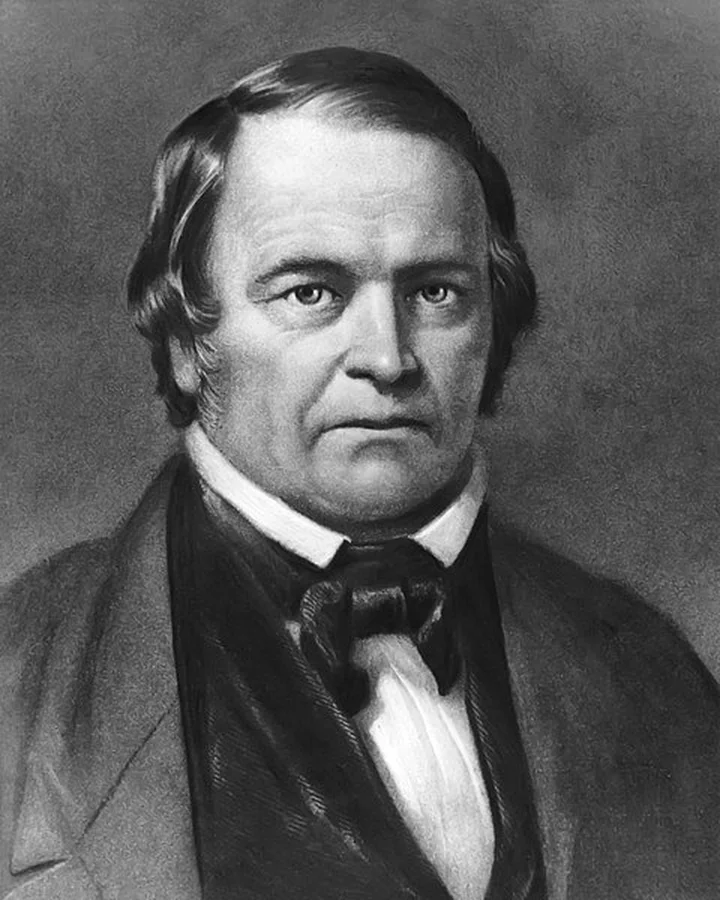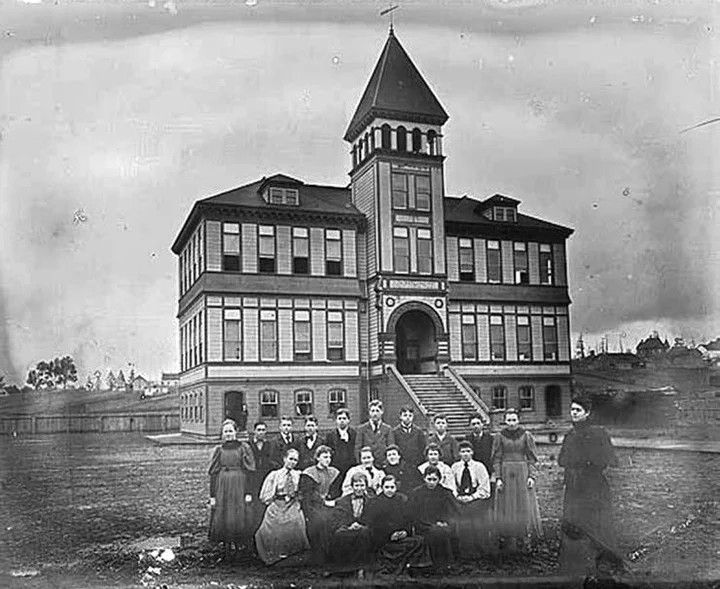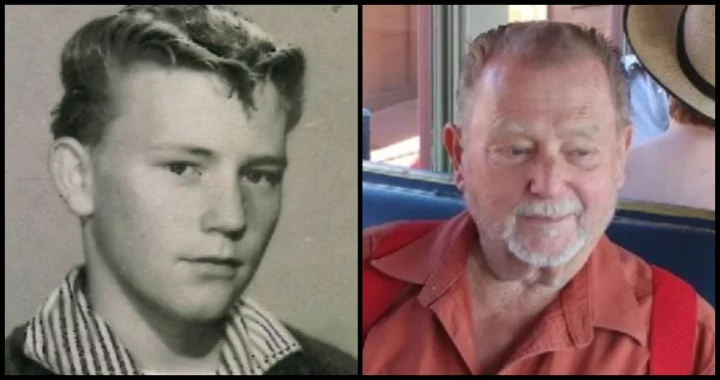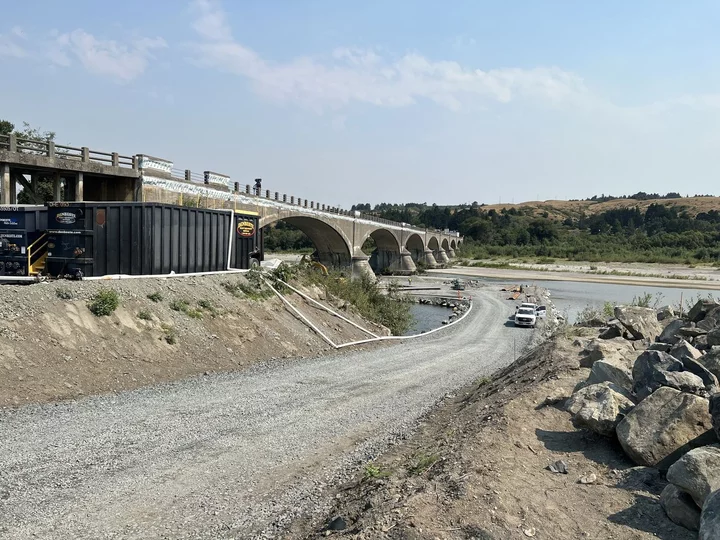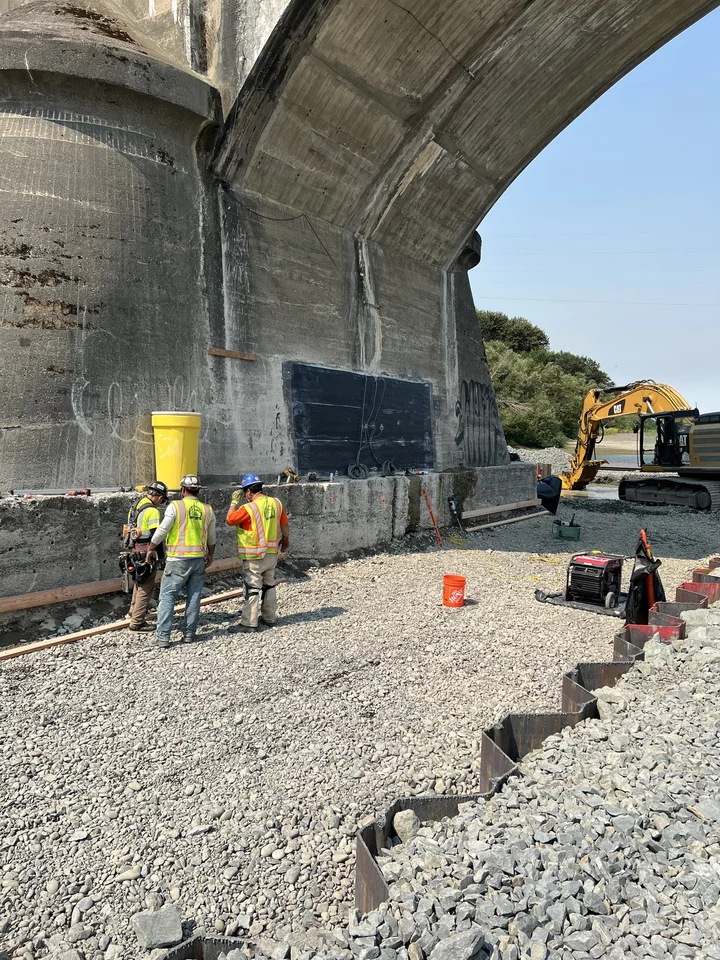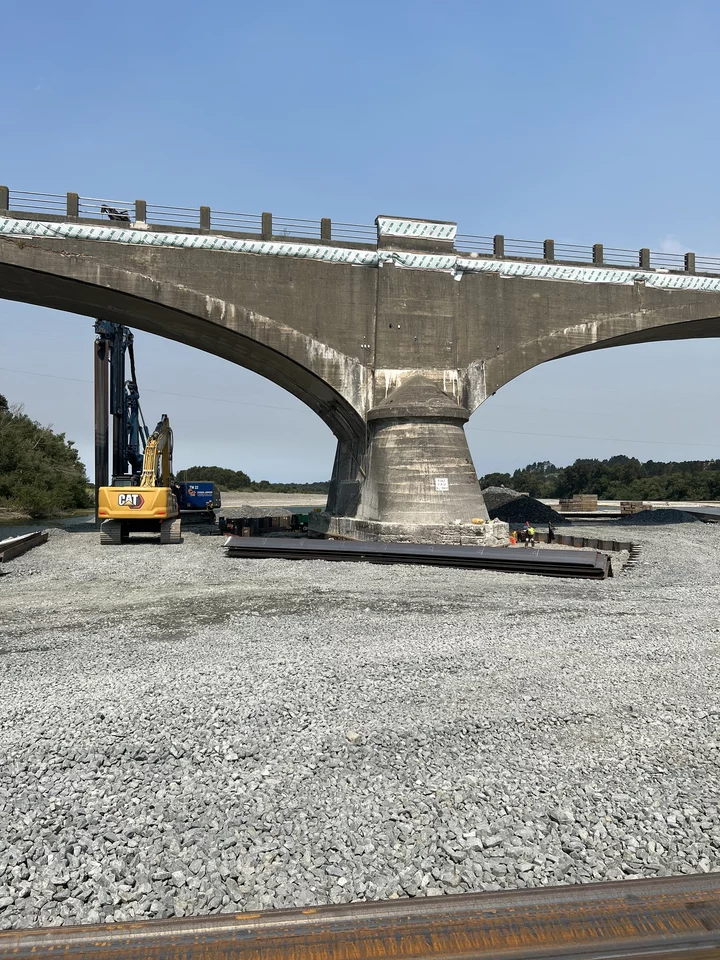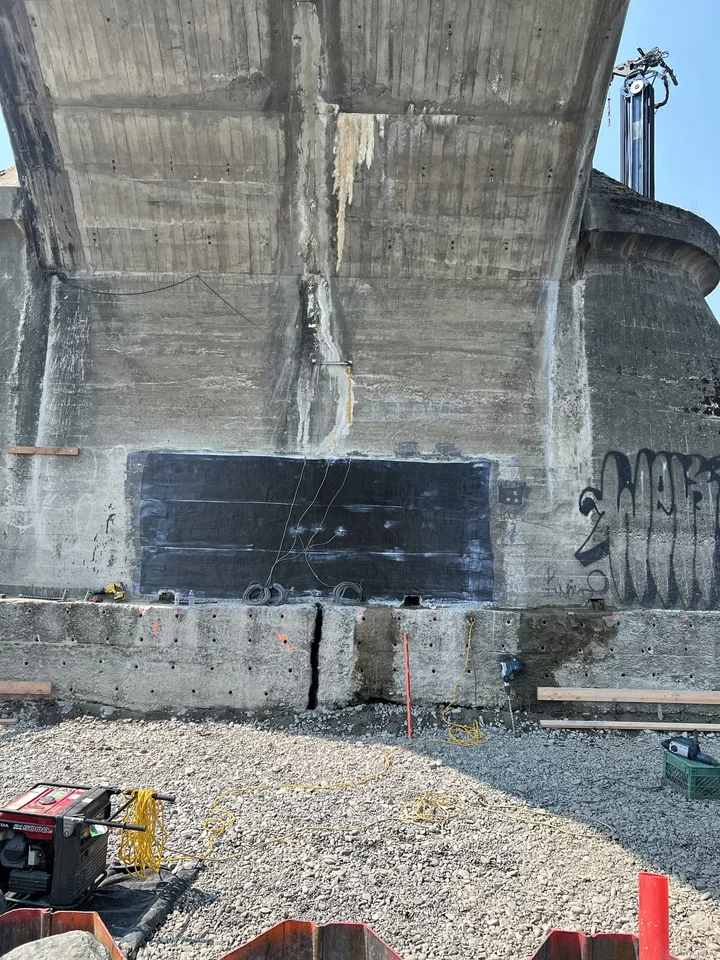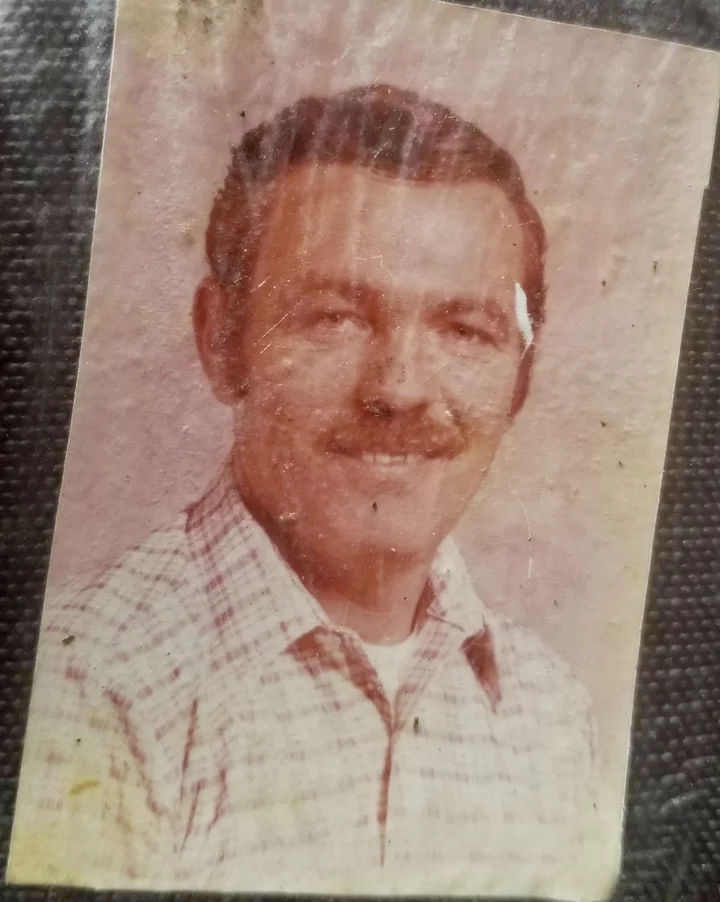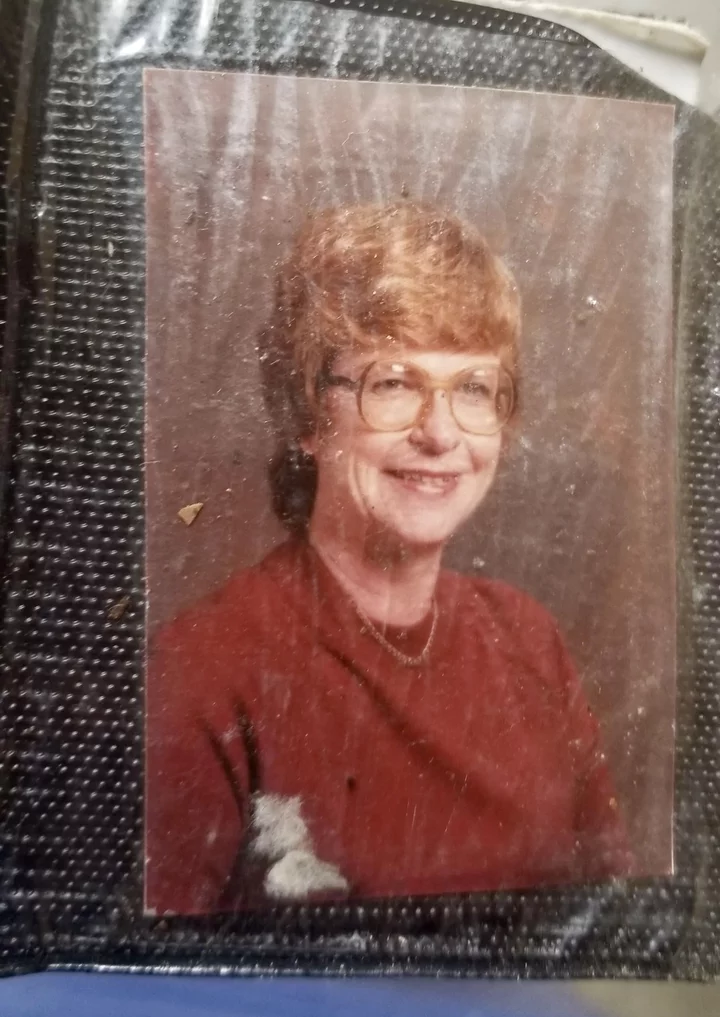GROWING OLD UNGRACEFULLY: Jesus’ Second Coming and DJT
Barry Evans / Sunday, Aug. 27, 2023 @ 7 a.m. / Growing Old Ungracefully
“It’s
less work, it’s
less effort, it’s
less painful,
to
reject reality than to reject a belief you’re
emotionally invested in.”
— Franklin Veaux on Quora, h/t Dave Fitzgerald
###
I see where our last ex-president says that, next news conference, he’ll provide irrefutable proof that he was cheated out of a second term. Again. The proof is always just around the corner, any day now, yet somehow it never quite materializes. So how his followers take this? Do they say, “Hey, the guy’s obviously lying, I’ll never vote for him again”? Nope, quite the opposite: they double down. According to CBS last week, “Trump far and away leads the GOP field among voters who place top importance on a candidate being ‘honest and trustworthy.’” So: why do people, something approaching 80 million Americans, believe him? It’s called cognitive dissonance.
The phrase seems to have originated in a 1956 book, When Prophecy Fails: A Social and Psychological Study of a Modern Group That Predicted the Destruction of the World, by Leon Festinger and others. They studied a small religious group in Chicago, “The Seekers,” whose guru, housewife and automatic writing practitioner Dorothy Martin, predicted a huge flood for the night of December 21, 1954, which would wipe out much of North America. (She based her knowledge on messages received from the planet Clarion.) When nothing happened, many of the group members dug in, coming up with (implausible) rationales for the non-event. Somehow they were able to keep two contradictory events in their minds simultaneously, that (a) the flood was definitely coming and (b) it didn’t come.
Festinger wrote later, in an article for Scientific American, “…cognitive dissonance…centers around the idea that if a person knows various things that are not psychologically consistent with one another, he will, in a variety of ways, try to make them more consistent.” Wikipedia’s entry on cognitive dissonance sums up Festinger’s idea: “Coping with the nuances of contradictory ideas or experiences is mentally stressful. It requires energy and effort to sit with those seemingly opposite things that all seem true. Festinger argued that some people would inevitably resolve the dissonance by blindly believing whatever they wanted to believe.”
Trump’s true believers have plenty of predecessors, going way beyond that small Chicago group. Today’s Seventh Day Adventists and Jehovah’s Witnesses have roots in the “Millerites” of the 1840s. William Miller, a Baptist lay preacher, predicted Jesus’ Second Coming would occur “sometime between March 21, 1843 and March 21, 1844.” (He based his prophecy on the Book of Daniel.) Following the latter date, he announced Jesus’ return would take place, definitely, on October 22, 1844. When that date came and went, the majority of Millerites — we’re talking tens of thousands of believers all across the United States, and in the U.K. and Australia, many of whom had sold their property in anticipation of The End — stuck to their guns! New dates for the Second Coming were proposed, or perhaps Jesus had returned, but was keeping quiet about it, or it’s going to happen any second now. Miller himself wrote, “The time, as I have calculated it, is now filled up; and I expect every moment to see the Savior descend from heaven. I have now nothing to look for but this glorious hope.” (Seventh Day Adventists claim that October 22, 1844 was only the start of the process of atonement/cleansing, which is ongoing.)
William Miller, 1982-1849. (Unknown artist, Wikimedia, public domain)
For Millerites, Seekers and Trumpists, it’s easier and less stressful to continue to believe what part of you knows to be false than to face reality: cognitive dissonance in action. They can take heart from Charlie Brown. Okay, so when Charlie went to kick the football, Lucy snatched it away, every time. But next time, it’ll be different. Only believe.
BOOKED
Today: 8 felonies, 8 misdemeanors, 0 infractions
JUDGED
Humboldt County Superior Court Calendar: Yesterday
CHP REPORTS
1465 MM101 N DN 14.70 (HM office): Trfc Collision-1141 Enrt
15400-15565 Us101 (HM office): Trfc Collision-Unkn Inj
ELSEWHERE
RHBB: ‘We Will Not Accept the Response’: Students Remain Overnight in Cal Poly Humboldt’s Nelson Hall
RHBB: Humboldt County Road Construction Notice: Central Avenue
RHBB: Electrify Home Appliances and Improve Efficiency, Says Arcata
Governor’s Office: Governor Newsom releases 2025 judicial appointment data
HUMBOLDT HISTORY: Remembering the Wonderful Arcata Elementary Teachers of the 1880s, and the Horrible Ones, Along With My Schoolchums and the Scrapes We Got Into
Charles Blodgett Hopkins / Saturday, Aug. 26, 2023 @ 7:30 a.m. / History
The Arcata School District was created in 1871, just six years prior to Charles enrolling in the fledgling school district. The photo at the right is a class photo taken in front of the Arcata School circa 1897, more than a decade after Charles graduated. It is unknown whether the building shown had been built at Charles attended. Photos via the Humboldt Historian.
###
Introduction by Janet A. Hopkins:
Charles Blodgett Hopkins came to Arcata in the fall of 1877 from Linn, Osage, Missouri. He was the twelve-year-old son of George W. and Elizabeth Dillon Hopkins. His father, a local attorney and a former captain in the Union Army, was in the grips of alcohol addiction which caused the family great hardships. He and his brothers and sister had been both home-schooled and attended a rural school in Missouri. His account was written in 1946.
###
In the fall of 1878, I started the intermediate grade school and got along well, though getting acquainted with the new environment, teacher and pupils was difficult as I had never been a good mixer. I think our economic situation had something to do with my drawback on getting a foothold on myself. However, I made fairly good marks in school for a beginner in a new school.
My second teacher, my first in California, was an old maid by the name of Miss Quick (see Endnote #1). Everybody, young and old, far and near, in this community had gone to school to Miss Quick. Some liked her and some did not. I didn’t stay in her room very long and was promoted to a higher grade in the same building. The new teacher was my third, and his name was Jim Ellis. I don’t remember much about him, only that he was not very sociable with his students and we did not hang around him much. He liked to show his authority. I passed out of this grade with as good marks as the average student. I was in his class about one year and then was sent up to the higher-grade school where there were three grades or classes, A, B, and C. This must have been in the fall term of 1879.
I struggled along for the next two or three years, trying to get the texts we were studying fixed in my mind, but many times they were a complete mystery. Whether it was the fault of the teacher or was I just dumb, I don’t know. I often caught myself listening to the A Class reciting, and it was seldom I could get things straight. Just beyond, there seemed to be a mist through which I must see the answer. The figures they put on the blackboard were a complete mystery to me. At the same time, I knew I was going to learn something about all this. Grammar was another hard subject for me to understand, and still is.
By 1878, we were living in a little shack just across the street and south of where the Arcata High School now stands. Our family was anything but a happy one. Our father was almost continually under the influence of the Demon Alcohol. My oldest brother, Henry Clay “Hal” Hopkins, under the same influence, had left home to seek his fortune among strangers. He lived in Shasta County for many years, working as a miner. My other brother, Walt, three years my senior and my lifelong chum, remained home and found work where ever he could. His education was limited and in consequence he earned what money he got the hard way. As I look back now, I think the conditions at home caused him to seek associates that were none too good for his future welfare.
Our home life was near the breaking point. I can see my sainted mother now sitting there, her hands folded in her lap, the tears streaming down her cheeks, almost ready to give up. She drew me to her side and asked me to promise her I would never bring shame and disgrace to our family using alcohol. On bended knees, my head buried in her lap, I made the promise and I am sure God has helped me to keep that promise.
My next teacher was Mr. William Henry Harrison Heckman ( see Endnote #2). He was a man of wonderful understanding of youngsters of my age and older. At recess and at the noon hour we would all, boys and girls, rather hang around and listen to him tell stories and relate his experiences than go out to the playground. He was a crack shot with a shotgun on the wing, shooting either quail or ducks. He would tell us that it was unsportsmanlike to shoot game of any kind without giving it a chance to get away. We would come back at him with, “A fat chance a quail or duck would have getting away from you if it was flying.” He would laugh all over and smile. Every Monday after he had been on a hunt that Saturday, he would have some thrilling story to tell about his sport that weekend. Mr. Heckman hunted with Mr. Ellis, but Mr. Ellis was neither hunter nor sportsman. He could not hit the broad side of a barn and never had any stories to tell.
Mr. Heckman had more control and decorum in the schoolroom than any other teacher I ever had. I believe I would have learned something if I could have gone to school to him a few years longer. There was never any trouble, I never saw him punish anyone. We knew he meant every word he said, and therefore everyone loved and respected him. Mr. Heckman was a big man, not fat, but well-built, always jolly and in a good humor. He was elected County Clerk of Humboldt County in 1880 or ’82, I’m not sure which it was, and we lost our best teacher.
A man by the name of Mr. J. B. Casterlin succeeded him. Mr. Casterlin was a rather small man, wiry and a pretty good teacher. He was a little impulsive and would lose his temper occasionally and was not as sociable as Mr. Heckman. He stayed only a year and was succeeded by the notorious Mr. Clayborn (#3).
From the very day Mr. Clayborn entered the schoolroom, there was a feud started that increased as the days went by. If a pupil were backward, as there were several, he would be sarcastic and make slighting remarks instead of helping the student. He would say unkind and cutting remarks to them during recitations periods. No one liked him, and I often wondered how he held his job. I went to school to him a year or so, and I guess my parents decided that I was not learning much. I could quit and go to work when I could find it.
In 1882, toward the end of my schooling, an incident occurred that I often think about. Mr. Clayborn was my last teacher, and none of the students liked him. He was always in a scrap with someone. One cold winter morning, we were all huddled about the big stove. To torment Mr. Clayborn as much as we could, someone dropped a piece of Asafetida—everyone was carrying some of this medicine to keep from taking some kind of disease—on the stove, which made an awful stench.
If a bomb had dropped, the crowd of youngsters could not have scattered any quicker. The teacher ran to the lab, got some alcohol and poured it on the stove. In a few minutes the stench cleared. Mr. Clayborn paced the room several times, and then stopped facing all of us (we were all seated by then). “I have a notion to take my coat off and wallop the last one of you!” at which all the students started laughing. The teacher was so mad he could not speak for a minute or so but kept pulling on his two-inch long mustache. Finally, he decided to drop the matter for the time being and went back to his desk and called the first class.
When Mr. Clayborn would come out on the porch to ring the bell for one o’clock, the boys would start on a game of chase called “Follow the Leader.” The girls would go up the street to a platform and sit down until the boys would come back. Then the whole group would straggle into school one after the other, sometimes taking five or ten minutes for all to get seated. These were happy days even if we were willful and naughty kids.
Another day, a chum of mine and I cut school on a Friday afternoon to go fishing off the wharf. Clayborn lived in Eureka and always went home on Friday afternoons. Lo and behold, a car drove up to meet the boat and there sat Mr. Clayborn in the front seat looking directly at us. We pretended to be pulling fish out until the car passed. Next Monday morning, he called us up to his desk immediately after school was called and asked us why we were absent on Friday. We told him we had permission from our parents to go fishing. He came back at us with a scowl, saying, “Yes, I saw you and it is well you had permission, or I would settle with you.”
Not long after that, the most exciting incident of all occurred. Johnny Woods, a wiry little fellow and one that would fight a buzz saw, got into trouble. Clayborn was going to trim him, but when Clayborn got up and started for Johnny, he turned and started for the back of the school room with Clayborn after him and round they went.
There was a half-open window, and when Johnny came ‘round to it he cut out like a sparrow and around the building to the front where Clayborn met him. Johnny took to the street. It was raining and there were puddles in the street, and down that wet street they went, Johnny taking the middle of the puddles like a jack rabbit and Clayborn coming in second. Johnny left Clayborn so far behind that he gave up the chase and came back, mud from head to foot. Such is the life in a country school!
During the last two years of my school days, I had a few close friends. Among them were my two cousins, Mattie and Davis Dillon (#4) who I had known (though not intimately) for years; George Richards; Harry W. Jackson (#5), Emily and Minnie Galinger (#6), Charlie Stouder (#7), Jessie and Millie Armstrong (#8) and their mother, Aunt Inez. She was always like a mother to me right up to the last time I saw her in 1924.
The one friend that stands out more clearly than the others is Harry W. Jackson. He was an “A” grader, exceptionally bright, a good sport, sociable and had a good head on his shoulders. Our first close association came about like this: It was a damp, rainy day in December. At morning recess, most of the boys had gotten into a game of throwing mud. It was a dirty kind of play and the teacher called in all those who were involved in the mudslinging, me included, and gave us a moral as well as humiliating lecture. We were given the penalty of two weeks confinement, at recess, in a lot about 40 x 100 feet near the rear of the building. We were not long in adjusting ourselves and chose Harry as the captain of the Mud Brigade. This incident linked our lives together in such a way that there was a mutual understanding between the two of us for year to come.
After I left school, I often wished I might plan some way that I could go to college. In those days the opportunities to work your way through college were slim. If you did not have the means to pay the major part of the expenses, it was just too bad for you. My parents were not financially able to help me much. After a man was past 21 years of age, there were few that could go through college without some help from relatives or friends unless there had been some provision previously made for that purpose.
In 1904, I took a course in architectural drawing and design from the International Correspondence Schools when I first went into carpentry. The mathematical part of which was a wonderful help to me in later years. At the time I was taking the course, I was working hard every day at the carpenter work and doing all my studying and drawing at night which was bad on my eyes. As a result, I had to stop most of the night work and eventually the course was neglected.
I was always fond of music and tried to learn on several instruments but finding time to practice kept me from accomplishing much. My great desire as a young man was to create something that I could see after the work was completed. A railroad work came nearer to this ideal than any other work I had ever followed. I was never forward or aggressive in company, a good listener and always tried to see both sides if there was any argument. I have had the responsibility of overseeing and directing the work of other men and always found it the best policy to be gentlemanly and courteous to those under me.
###
Note from Janet A. Hopkins:
In later years, Charlie mortgaged the family home and sold landholdings in the Ukiah area to put his sons through college. They both went on to have successful professional careers.
Eldest son C. Howard Hopkins, PhD, wrote numerous books including A History of the YMCA, John R. Mott: A Biography and The Social Gospel. He was emeritus Professor of History at Rider College, and also taught at Stockton Junior College and Bangor Theological Seminary. He later was the Dean of Stetson College in Florida.
Charlie’s younger son, Cleveland Hopkins, graduated from Stanford University and worked for the government for most of his career, beginning at MIT and the early development of the radar through his work on the Early Warning System during WW II. He was present at the early tests of the atomic bombs that were used on the Japanese. His subsequent work focused on various peace time efforts by the US government.
###
ENDNOTES
1. Miss Elizabeth “Eliza” Quick was living in Ferndale in 1880, her occupation was teacher. Twenty years later, she was living in Bucksport, still single and still teaching. Eliza was born November of 1859. It is interesting that Charlie called her an “old maid” at only 20!
2. William Heckman appears in the 1900 census married to Mary C. Heckman. They were living in Eureka Ward 3. William was born August 1850 in Pennsylvania.
3. I believe this may have been William Frank Clyborne from Michigan. He was 24 and a teacher in the 1880 Census. Later census records noted that he became an attorney and married Jane “Jennie” V. Gage in 1881.
4. Children of John Randolph and Mary Ann Tracey Dillon.
5. This is likely Harry Woodville Jackson, son of Elisha and Corelia Kendall Jackson of Martins Ferry. The family went to California from Aroostook County, Maine in 1873. Harry was born in Abbot, Maine January 1863. He married Alicia May Betancue in April 1890.
6. Emeline Esther and Minnie Galinger were the daughters of Abram and Zetta Galinger who emigrated from Bavaria in 1870. The girls were born in California. In 1880, the family is living in Arcata.
7. Charlie was the son of Frederick and Margaret Haroner Stouder. His parents were Swiss and had initially emigrated to Illinois in the early 1850s before going on to Arcata in the 1870s. Charlie married Mary Dodge and later moved to Oregon.
8. I suspect this is likely Mary Jane “Jessie” and Minnie Pinkerton, daughters of James and Margaret Mitchell Pinkerton of St. Patrick, Charlotte, New Brunswick, Canada. Jessie married Edward J. Armstrong in 1883. An older brother, Harvey, arrived in Eureka in 1881, as did Jessie.
###
The story above was originally printed in the Fall 2019 issue of The Humboldt Historian, a journal of the Humboldt County Historical Society, and is reprinted here with permission. The Humboldt County Historical Society is a nonprofit organization devoted to archiving, preserving and sharing Humboldt County’s rich history. You can become a member and receive a year’s worth of new issues of The Humboldt Historian at this link.
OBITUARY: Reid Marshall Aiton Sr., 1941-2023
LoCO Staff / Saturday, Aug. 26, 2023 @ 6:56 a.m. / Obits
Reid
Marshall Aiton Sr.
August 19, 1941 – August 7,
2023
Reid Marshall Aiton Sr. passed on August 7, 2023, in Santa Rosa. He was born in Eureka on August 19, 1941, to Andrew (Marsh) Aiton and Bessie A. (Wahlund) Aiton and was an only child. He married Margaret Kay McCann on January 13, 1961, in Arcata. and they raised three sons, Reid Jr., Rodney & Russell and one daughter, Dianne.
He started his career in the timber industry as a choker setter working for Bill Boak and later for Simpson Timber Company, where he stayed for over 35 years retiring as the log yard supervisor. He was also the director of the California chapter of the National Trappers Association.
He loved all aspects of being outdoors, a man of many facets, an avid hunter, trapper & fur trader, fisherman, and gardener. Deer season was spent taking his family hunting and years of success was proudly displayed on the walls of his home. Truly the last of his kind, skilled in trapping and the fur trade, he spent countless hours teaching family and friends how to trap, process and grade the hides for sale, and taking them to fur sales and rendezvous. An experienced fisherman, both commercially and for sport, he spent many hours on the ocean with his children. His trapping business also sponsored many little league and Babe Ruth teams in the Blue Lake area.
Reid is survived by his children Reid Jr., Dianne Holba & husband Kevin, Rodney, Russell & wife Michelle, 11 grandchildren, 19 great-grandchildren, and many nieces, nephews, and cousins.
PRIVATE MEMORIAL SERVICE, for Family Members
Will be held at Blue Lake Community Church
440 Wahl Street, Blue Lake, Friday, September 8, 2023, Starts at 11 a.m.
CELEBRATION OF LIFE, for Family & Friends, Everyone is Welcome
Will
be held at Camp Bauer, Korbel
(GPS plus code: V2HX+JH Korbel,
California)
Saturday, September 9, 2023
Starts at 1:30 p.m.
For additional information, contact Michelle Aiton: 707-668-5682.
###
The obituary above was submitted on behalf of Reid Aiton’s loved ones. The Lost Coast Outpost runs obituaries of Humboldt County residents at no charge. See guidelines here. Email news@lostcoastoutpost.com.
Fortuna Woman Who Threatened to Kill Numerous Elected Officials Appears in Court for Restraining Order Proceeding
Isabella Vanderheiden / Friday, Aug. 25, 2023 @ 4:20 p.m. / Courts
PREVIOUSLY:
###
This afternoon, Humboldt County Superior Court Commissioner Frances K. Greenleaf granted the County of Humboldt an extension on a temporary restraining order against Fortuna resident Aunna Bollman, 41, who was arrested earlier this month for threatening to kill numerous local government officials and their families. There are 55 individuals requesting protection under the restraining order.
During today’s hearing, the court considered a restraining order request from Deputy County Counsel Thomas Chapin on behalf of the County of Humboldt but, because Bollman has yet to obtain an attorney, Commissioner Greenleaf agreed to issue a short continuance on the matter.
Bollman appeared in court, seeming composed and dressed in a navy blue jumpsuit with her blond hair swept up in a ponytail. She explained that she had not had a chance to talk to an attorney since she was arrested on Aug. 3, noting that the Fortuna Police Department has taken her phone at the time of her arrest.
Several Humboldt County officials appeared in court as well – including Human Resources Director Zachary O’Hanen, Clerk-Recorder and Registrar of Voters Juan Pablo Cervantes, Deputy County Counsel Goldy Berger and Fourth District Supervisor Natalie Arroyo, who was accompanied by her husband, Jason Lopiccolo. None of them spoke during today’s hearing.
Bollmann is scheduled to appear in court on Friday, Sept. 15 for the next hearing on this restraining order. A criminal hearing against Bollman has yet to be scheduled.
As Fernbridge Repairs Continue, Caltrans to Host Another Workshop to Discuss the Future of Access to Ferndale
LoCO Staff / Friday, Aug. 25, 2023 @ 3:19 p.m. / Transportation
Photos via Caltrans.
PREVIOUSLY:
- Humboldt OES: Fernbridge Closed Again For Damage Assessment Following This Morning’s 5.4 Shaker
- The Future of Quake-Damaged Fernbridge is Uncertain; New Bridge May Need to Be Built, Caltrans Says
- CROSSING THE WATER: Getting Over the Eel to Ferndale, Before and After the Bridge
###
The following info was released Friday by the California Department of Transportation:
Please join Caltrans for another public workshop regarding future access in and out of Ferndale. The workshop will be held on Wednesday, August 30 at Ferndale City Hall from 5:30 to 7 p.m. More information about future Ferndale access can be found here.
Time for a Deeper Dive
In June, Caltrans met with community members to get your input and ideas for the future of transportation access and mobility in Ferndale. Now we’re inviting you to come share your insights on the benefits and challenges of different ideas about access into and out of Ferndale.
How do you envision future community access to Ferndale?
Which potential avenues should we explore further?
This workshop is the second in a series of initial steps in Caltrans’ engagement with the community, and will include opportunities to:
- Hear an update on work on Fernbridge
- Learn about the Caltrans planning process
- Give input on transportation ideas generated by the community.
Light refreshments will be provided.
###
In the meantime, over on its Facebook page, Caltrans District 1 offered the following update on repairs at Fernbridge:
All the equipment needed for repairs on Pier 2 has been mobilized. An oscillator – a piece of drilling equipment that rotates steel pipe casing back and forth into the earth to help facilitate the drilling of piles — is on its way and will be in use soon. Crews have finished putting in metal sheet piles for a cofferdam around Pier 2. Think of the cofferdam as a watertight barrier that is needed for foundation construction.
Additionally, we’ve wrapped up some CFRP strengthening. That means using carbon fiber-reinforced plastic to make the bridge even tougher. We’ve also been filling in some additional cracks. It’s like giving the bridge a superhero suit! Now, we’re digging down to the bottom of the cofferdam to place a concrete seal course to enhance its effectiveness and keep it watertight.
Thanks for your patience and understanding as crews work hard to keep traffic moving over Fernbridge safely.
(PHOTOS) RECOGNIZE THEM? Local Hopes to Return Photo Album Found on the Road in Eureka to Its Owner
Andrew Goff / Friday, Aug. 25, 2023 @ 11 a.m. / Community Services
UPDATE: An owner has been found! The photos were stolen out of her trailer during a recent move, but she tells LoCO she’s happy to get these back.
Because of Chickenbutt9000, the world is a better place. Well played.
# # #
A local Redditor who goes by the name “Chickenbutt9000” posted earlier today that they’d come across someone’s trove of family snapshots. They’d like to reconnect the memories with their owner if that’s possible.
The photo album was discovered on the roadway near the intersection of First and T streets in Eureka. Below is a sampling of the over-a-dozen photos in the collection.
LoCO is under the impression that the vast majority of Humboldt residents have never attempted to navigate Reddit. If the people in these photos are familiar to you, you are welcome to reach out to us and we’ll help connect you or, if you’ve got the know-how, reach out to Chickenbutt9000.
OBITUARY: Dixie Garrett, 1936-2023
LoCO Staff / Friday, Aug. 25, 2023 @ 6:56 a.m. / Obits
Dixie
Garrett died peacefully on July 11, 2023 with family at her bedside.
Born Dixie Lee Ashenhurst on August 5, 1936 to Grace (Holloway) and
Hayes Ashenhurst of Lamoni, Iowa, Dixie went on to live a life unbent
by convention.
Daughter of a military family, Dixie spent her early childhood in far off places such as Tsingtao China and the Phillipines, eventually settling in San Diego, CA. Her parents divorced when she was eighteen; each remarrying on the same day. After graduating from La Jolla High School, Dixie returned to Iowa to attend Graceland College. During her first summer break, while visiting her father and new stepmother in Sasebo, Japan, Dixie was to find her heart’s home. The people, country and culture of Japan were to remain Dixie’s life-long love.
It was while in her early 20s, pursuing degrees at San Diego State University, that Dixie met and married Rod Garrett, future architect of Burning Man’s Black Rock City. Dixie and Rod were counter-culture bohemians with a crowd of beatnik friends in North Hollywood, San Diego at Mira Mar Ranch, and in Marin County. Throughout both their lifetimes, Dixie and Rod told stories of high times with the likes of Lenny Bruce and Tommy Smothers.
The changing culture of the early 1960’s drew the young couple north to Sausalito, where they rented a houseboat on the bay and became good friends and neighbors with Zen philosopher Alan Watts and painter Yanko Varda. In 1965 the two divorced and Dixie was left with life-long heartbreak. As a single mom with two young girls in tow (Spring and Kelley) Dixie did what she could to make ends meet, teaching art classes and renting out rooms. A son, Manning, was born to her in 1969.
As her family’s black sheep, Dixie forswore undergarments, took up the teachings of Sant Mat and moved her children to far northern California in 1970. There, with a few partners, Dixie briefly opened and shortly thereafter closed “That Vegetarian Place” restaurant in Redding.
Inhabiting an artistic and intellectual soul, Dixie possessed a mastery of the spoken word and a keen wit. Dixie wove color and mood around herself in the form of poetry, pastel, sculpture and handmade clothing. She knitted explorations into ponchos. She wrote notes and brainstorms. She got frustrated and angry. She loved and enjoyed and exposed her kids to a wide range of open-minded, cultural experiences. Though the family was poor, Dixie always made holidays special for her children.
Dixie lived a quiet life with her kids under the giant oaks of Bella Vista in Shasta County for many years. In the late 1970s she “pulled herself up by her bootstraps” taking a job as the food stamp outreach coordinator for the FNICO (Far Northern Interior California Outreach) — an acronym she coined and proudly touted. Her new job gave the family a standard of living previously not experienced. Mid-life, Dixie and her second daughter traveled to Japan, where Dixie had the great pleasure of reconnecting with her adopted family the Hamasakis who called her “Dikusi-san.”
In the 1980s Dixie emerged as a creative force in the Redding community theater scene, taking on dramatic and comedic roles that were performed to great accolades and that are still fondly recalled by a great many fans.
After her kids had grown and moved on, Dixie spent many years in a little creekside house in Redding under a cool, leafy canopy. An owl lived in her tree. She had cats. Possum and raccoon were friends. She taught ESL at Shasta College. She knitted, she dipped in her soaking pool and she kept abreast of politics.
To be near her daughters, grandson and new granddaughter Dixie moved to McKinleyville in the early 2000s. Many fine family times were had there. Always a creative genius, Dixie explored computers and digital photography in later life, greatly enjoying herself and often capturing the sacred (and perhaps the profane) of everyday moments and minutiae.
Dixie is preceded in death by her mother Grace and her stepfather Charles, her father Hayes and stepmother Marian.She leaves behind much loved younger sister Ralene Rizzo (who sadly passed away three weeks after Dixie) and kindred-spirit brother Tracy DePue, along with her nieces Abigail Stout and Lora Davis and nephew Tony Rizzo. Dixie is survived by her daughters Spring Garrett (Mitch Higa) and Kelley Garrett (Sandra Rosas), her son Manning Garrett, her grandson Ryley Garrett, granddaughter Rayna Higa, cat Furnando and many dear friends.
Dixie was assuredly one-of-a-kind and will be greatly missed. One can see her in the setting sun, the rising moon, in butterflies and orange poppies. A memorial will take place at a later date. Please email springmay@mac.com for details.
Though Dixie bore the burden of ill health in her final years, she was a good sport about it and kept her sense of humor to the end. And, as Dixie was fond of quoting Looney Tunes, “the the the that’s all Folks!’
###
The obituary above was submitted on behalf of Dixie Garrett’s loved ones. The Lost Coast Outpost runs obituaries of Humboldt County residents at no charge. See guidelines here. Email news@lostcoastoutpost.com.

